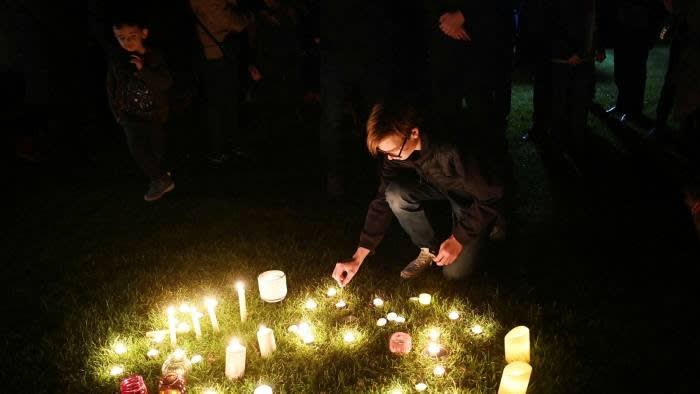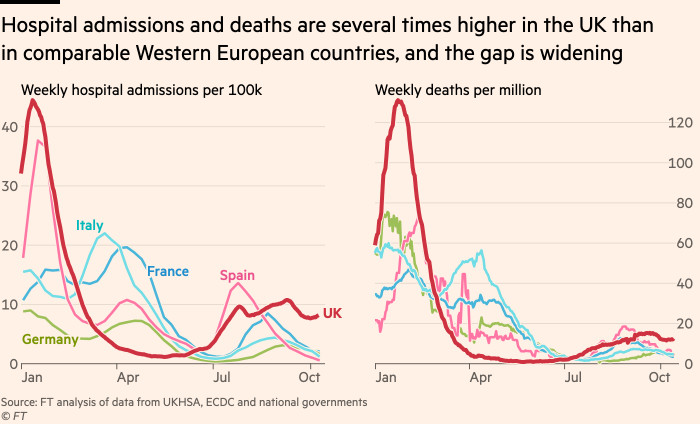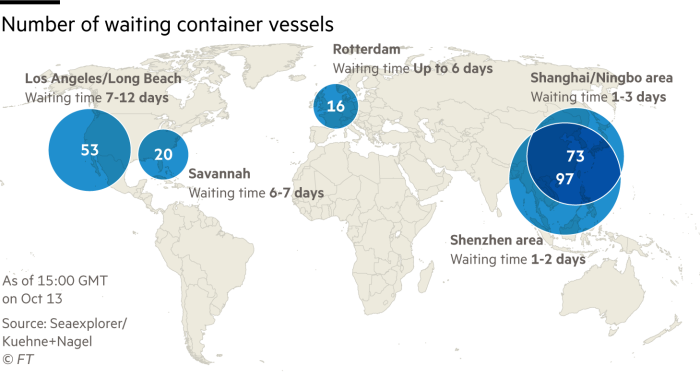China tested a nuclear-capable hypersonic missile in August that circled the globe before speeding towards its target, demonstrating an advanced space capability that caught US intelligence by surprise.
Five people familiar with the test said China’s military launched a rocket that carried a hypersonic glide vehicle which flew through low-orbit space before cruising down towards its target.
The missile missed its target by about two-dozen miles, according to three people briefed on the intelligence. But two said the test showed Beijing had made astounding progress on hypersonic weapons and was far more advanced than US officials realised.
The test has raised new questions about why the US often underestimated China’s military modernisation.
“We have no idea how they did this,” said a fourth person.
The US, Russia and China are all developing hypersonic weapons, including glide vehicles that are launched into space on a rocket but orbit the earth under their own momentum. They fly at five times the speed of sound, slower than a ballistic missile. But they do not follow the fixed parabolic trajectory of a ballistic missile and are manoeuvrable, making them harder to track.
Thanks for reading FirstFT Asia. Here is the rest of today’s news — Emily
Five more stories in the news
1. China’s energy crisis threatens global supply chain Factory owners in China and their customers worldwide have been told to prepare for power supply disruptions becoming part of life as President Xi Jinping doggedly weans the world’s second-biggest economy off its dependence on coal.
-
Related read: Chinese coal futures delivered their biggest weekly rise on record last week.
2. UK invites China to invest in non-strategic parts of economy Anne-Marie Trevelyan, the new international trade secretary, said China is welcome to carry on investing in non-strategic parts of the UK economy and backed Saudi investment in Newcastle United Football Club in spite of human rights concerns.
3. Man held under Terrorism Act after killing of MP A 25-year-old British citizen has been named by government officials as the terror suspect arrested for the killing of Sir David Amess, the Conservative MP fatally stabbed on Friday. Amess, the representative for Southend West in Essex, was stabbed multiple times during a meeting with constituents at the Belfairs Methodist Church in Leigh-on-Sea.

4. Hong Kong’s ex-leader calls for Mayer Brown boycott CY Leung has called on Chinese companies to boycott the US law firm after it stopped representing a local university seeking to remove from its campus a memorial to the Tiananmen Square massacre.
5. Apple’s privacy changes create windfall for its ad business The tech group’s advertising business has more than tripled its market share in the six months after it introduced privacy changes to iPhones that obstructed rivals, including Facebook, from targeting ads at consumers.
Coronavirus digest
-
The European Central Bank is exploring raising its limit on purchases of EU-issued bonds, in a move that would help retain flexibility in bond markets afforded by pandemic relief scheme.
-
The Biden administration will drop travel restrictions for vaccinated foreign nationals from November 8.
-
Psychotherapist Esther Perel writes that understanding more about human relationships will help business leaders minimise the pandemic’s effects on staff.
-
A panel of top US scientists on Friday recommended approving Johnson & Johnson’s application to provide a second shot of its Covid-19 vaccine.
-
The UK’s weekly death rate last week stood at 12 per million, three times the level of other major European nations.

The day ahead
China GDP data and monthly retail sales figures The release of the estimate for third-quarter economic growth today comes at a critical juncture for the world’s second-largest economy. Here are five things to watch for.
2022 Beijing winter Olympics torch lighting ceremony Two activists opposing the 2022 Games over China’s human rights record were arrested in Athens on Sunday ahead of today’s torch-lighting ceremony. (Reuters)
Jury selection begins in Ahmaud Arbery trial Jury selection will begin today in the trial of the white Georgia men charged in connection with the murder of Arbery, a 25-year-old Black man. (NBC News, FT)
What else we’re reading and watching
Fumio Kishida pledges to steer Japan away from Abenomics Japan’s new prime minister has pledged to move the country away from neoliberal fundamentalism, in an interview with the FT. As he prepares for a general election on October 31, Kishida criticised his own party’s failure to deliver broad-based growth under the Abenomics programme.
-
Opinion: The prime minister wants to make his name as a friend of the pandemic-hit small business sector, writes Leo Lewis.
Does Uber deserve its $91bn valuation? Despite its valuation, the ride-hailing company still loses money. For more than a decade, investors have accepted billions of dollars of loss. Not for much longer. Now, Uber is pledging to balance the books, but it still faces legal challenges.
Supply chain lessons from Long Beach Port disruptions have shed light on bigger problems in the global economy, from incompatibilities of skills and jobs, to an over-reliance on China as the provider of any number of crucial goods, writes Rana Foroohar.
-
Go deeper: From Shenzhen to Los Angeles here are the world’s worst port delays.

Young workers have a better grip on the need to unplug Boomers may be baffled by 20-somethings’ demands for proper time off but they should be grateful. “If I had started work later and knew nothing but today’s always-on culture, I might have been a lot more insistent about carving out time to unplug,” writes Pilita Clark.
Is China’s economic model broken? Since the early 2000s some China watchers have been predicting that the building boom would lead to a crash. Twenty years on they may have been proven right. Global China editor James Kynge and Beijing correspondent Sun Yu discuss what is happening in its real estate sector.
Food & drink
Noodles are eaten from Beijing in the east to the Kyrgyz border. But while every region has its own specialities, from the zhajiang noodles of the capital to the Uyghur läghmän of Xinjiang, nowhere is more renowned within China for its dough arts than Shanxi province.


